Houseplants are the ultimate stress reliever for your home
It's time to keep calm and get our zen on

Words by Maisie Bovingdon
With the rapid escalation of Coronavirus across the UK, many of us feel as though our stress levels are at an all-time high. Although being stuck inside means we can't partake in many of the activities we normally rely on to chill out, there are still plenty of measures we can take to create a calming atmosphere within our homes.
Some people battling with stress, left feeling on edge or anxious, may turn to calming apps such as Headspace or Calm, or speak to a friend. But wellness expert Emma Mills has insisted there is another very simple way to put our minds at ease - houseplants.
Research has shown plants in the home can reduce tension in people by almost 40 per cent, because they remind us of the outdoors, nature, and a slower pace of life, which is instantly calming. Plus, if you're looking to set up a green office and make your WFH space more eco-friendly, it's a no-brainer.
The award-winning British author and consultant - who specialises in meditation and wellness - exclusively told Marie Claire UK: 'By bringing the outside in and enriching our indoor spaces with houseplants, this reminds us of a natural simple way of living. A pace of life that is slower yet still incredibly intelligent, beautiful and efficient.
'Plants remind us of a natural, simple way of living. A pace of life that is slower yet still incredibly intelligent, beautiful and efficient.
'Human beings are hardwired to respond positively to the natural environment. For example, studies now show a significant reduction in stress when plants are introduced to the workplace with a 37 per cent fall in anxiety, 38 per cent decrease in fatigue and 38 per cent reduction in hostility and anger.'
Celebrity news, beauty, fashion advice, and fascinating features, delivered straight to your inbox!
Emma has insisted not only having greenery indoors can relieve stress, but the act of watering plants can do wonders for the mind too.
Emma, and a spokesperson for thejoyofplants.co.uk, Chanel De Kock, tell us everything we need to know about the health benefits of plants in the home...
How and why do houseplants help to relieve stress?
Chanel: 'Green is the most predominant colour on the planet after blue. Green balances our energies, and it can be used to increase our sensitivity and compassion towards others, and the care we put into our plants is also an act of mindfulness, connecting us with nature.'
Emma: 'Usually in our day to day working lives we have a directed sharp focus, heavily concentrating on the screen for example, or intense analytical thinking in a meeting. This is important and useful. Yet after a while we can fatigue our attention and this isn't without consequence. Attention restoration theory suggests that certain things that can relieve us of our attentional fatigue, one of which is plants and the natural world.
'Studies have suggested looking at nature or plants - even photos of plants, that are fascinating but not demanding - can switch the brain into a different mode of processing better suited to relaxation, gentle focus and creativity. 'Further ideas by the human species report into the global impact of biophilic design in the workplace suggest that working in natural elements brings a 15% spike in reported wellbeing and 15% increase in creativity.'
Are some plants bigger stress relievers than others?
Chanel: 'It all depends on your capabilities when taking care of plants. Large foliage plants do help to create a serene space that brings a sense of calm with it, but if you’re not able to stick to a once weekly watering (and misting schedule if needed), that will not be beneficial to relieving your stress.
'Choose a plant that will work for you - the last thing the plant should do is cause anxiety. If you are a beginner, opt for low maintenance plants like yucca, dracaena or a zz plant (zamioculcas). They will instantly inject green into your space and you will feel a sense of achievement, and zen.'
'We believe that all plants are equal in terms of relieving stress, but from an aesthetic point of view, plants with softer, rounder or trailing shapes tend be more relaxing as they appear to be friendlier than plants with hard, striking architectural forms. Imagine walking into a room filled with plants that look ready to welcome you with an embrace - a ficus Lyrata or monstera with their huge rounded green leaves also adding lots of green, and a wall covered by flowing green plants like rhipsalis, Devil’s ivy and hoyas spilling over like cascading waterfalls from a shelf. Visually, these plants will create a more relaxing space for you to stop, relax, and breathe.'
When did you notice that plants helped with your mental health?
Emma: 'Both houseplants and gardening have always been a big source of joy for me over the years, playing a role in my own wellbeing and the guidance I share with others. Being close to nature has significant and wide-ranging health benefits and that's why I encourage people to enjoy the natural world as often as possible. I am hugely passionate about helping you to feel happier and healthier through not only meditation, but a holistic approach to life guided by a balanced diet, regular exercise and quality sleep— as well as taking time for the beauty of art and nature. I believe that small steps each day can make a big difference to your wellbeing.'
The Joy Of Plants has revealed there are five must-have houseplants we all need in our homes to create a space of zen.
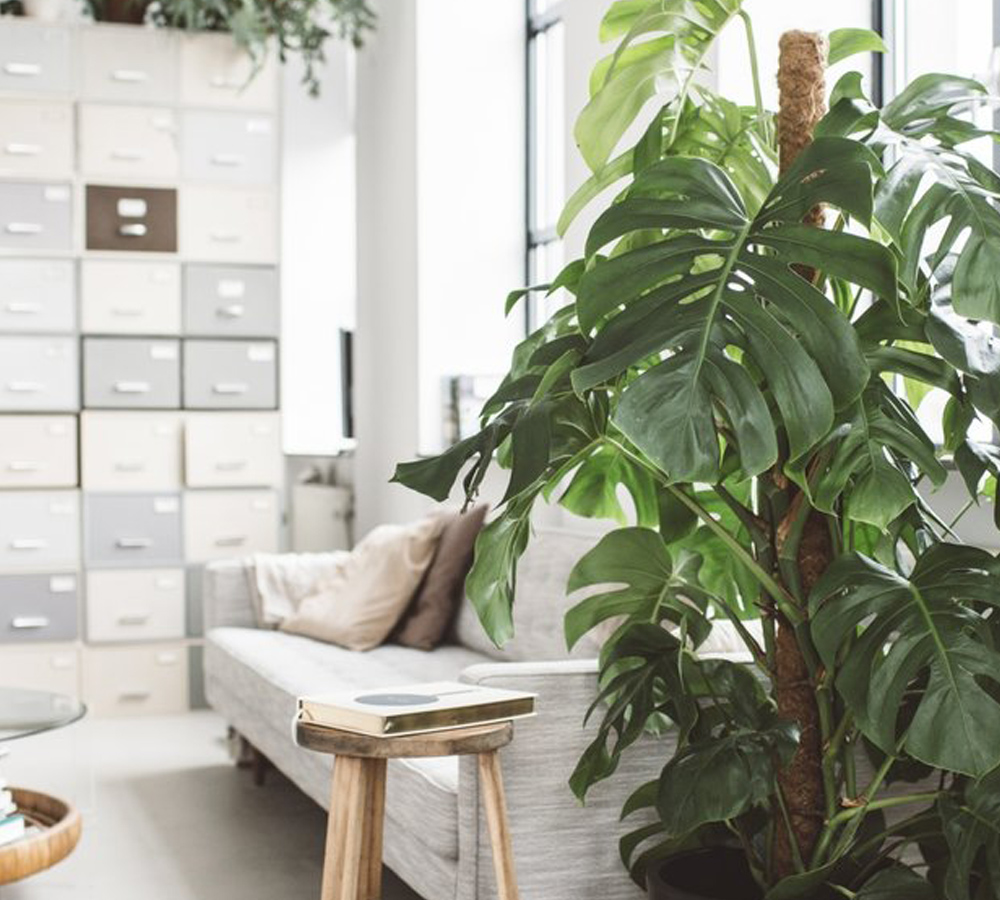
Monstera
Monstera is a must-have because it helps to balance energies and boost your mood.
This plant is in its element when placed in bright, natural light with poor ventilation, and it needs moderate watering.
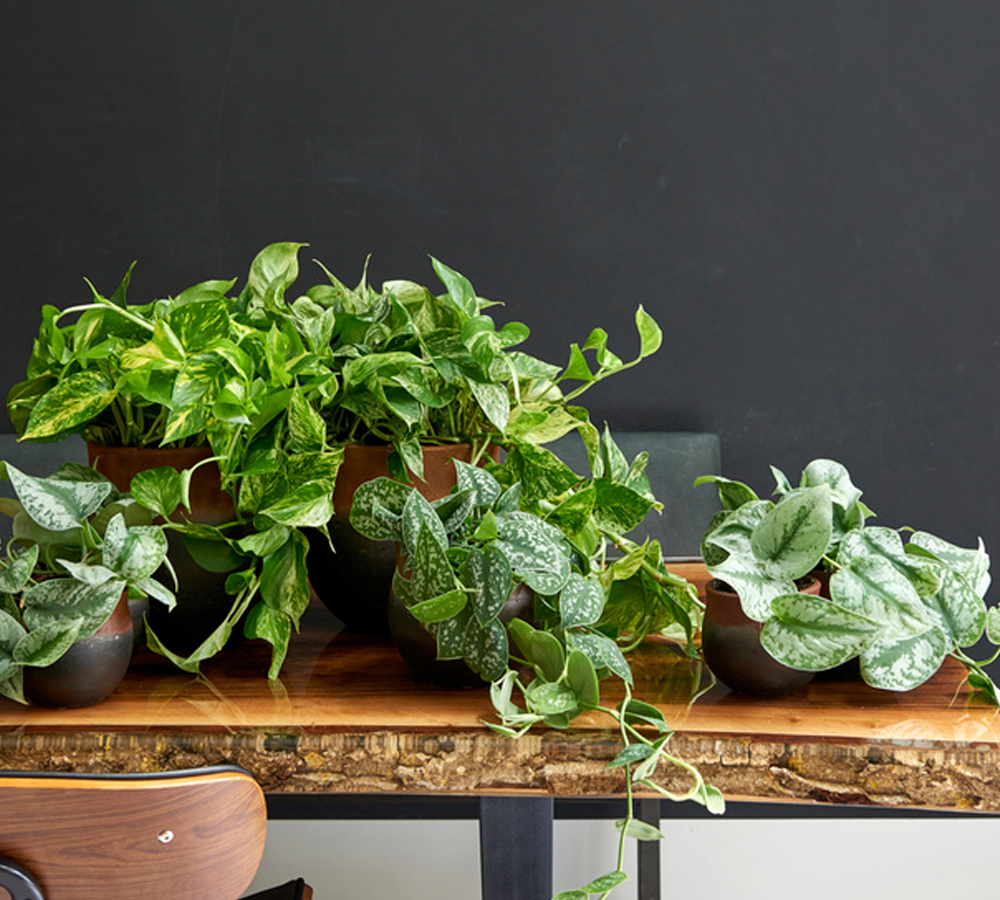
Devil’s Ivy
Devil's Ivy is said to bring luck and good fortune to your home, as well as extra zen - perfect!
This must-have, which gets its name from the heart shaped leaves, needs to be OUT of direct sunlight and draughts, although a spritz of water is all it needs - simple, right?
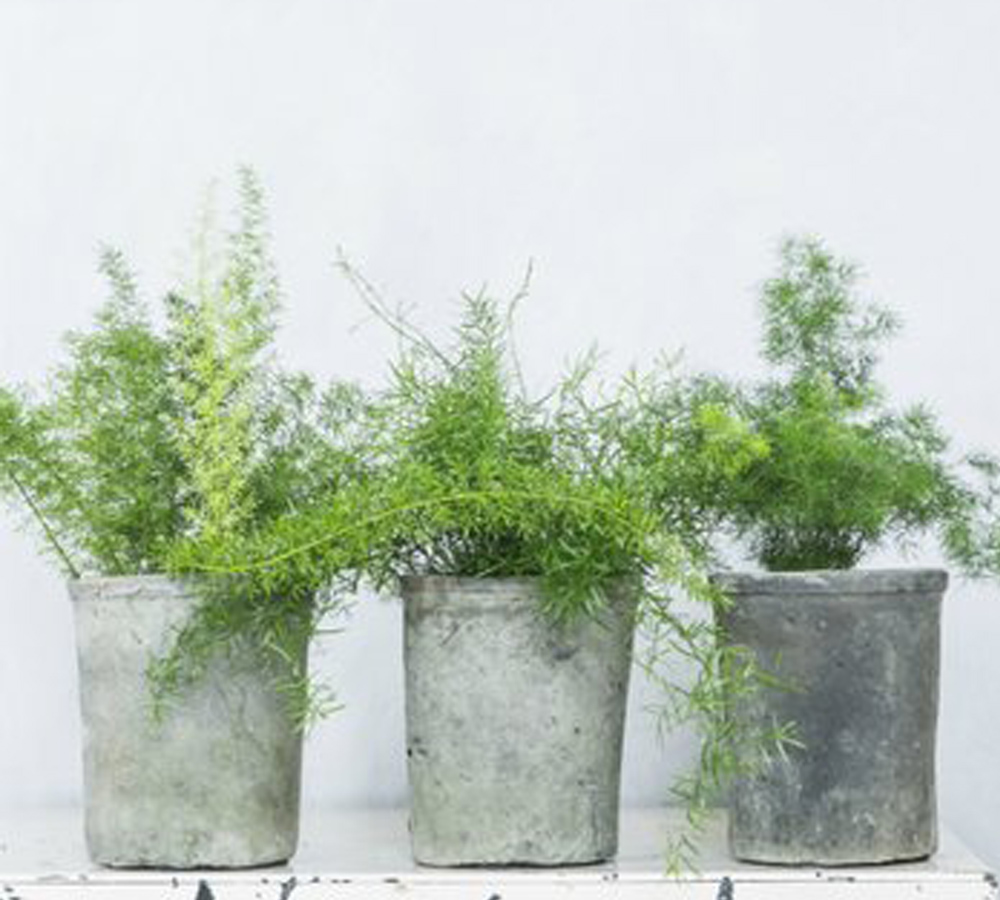
Asparagus Fern
The Asparagus Fern is a very strong and sturdy houseplant that is easy to care for, so it's perfect for a homeowner with a hectic lifestyle.
This shrub thrives when it receives daylight, although it shouldn't be in direct sunlight. If you want to bring out its full green glory treat it to some houseplant food each week from May to September, then stand back and watch it grow. We promise it won't turn into a scene in Little Shop of Horrors.
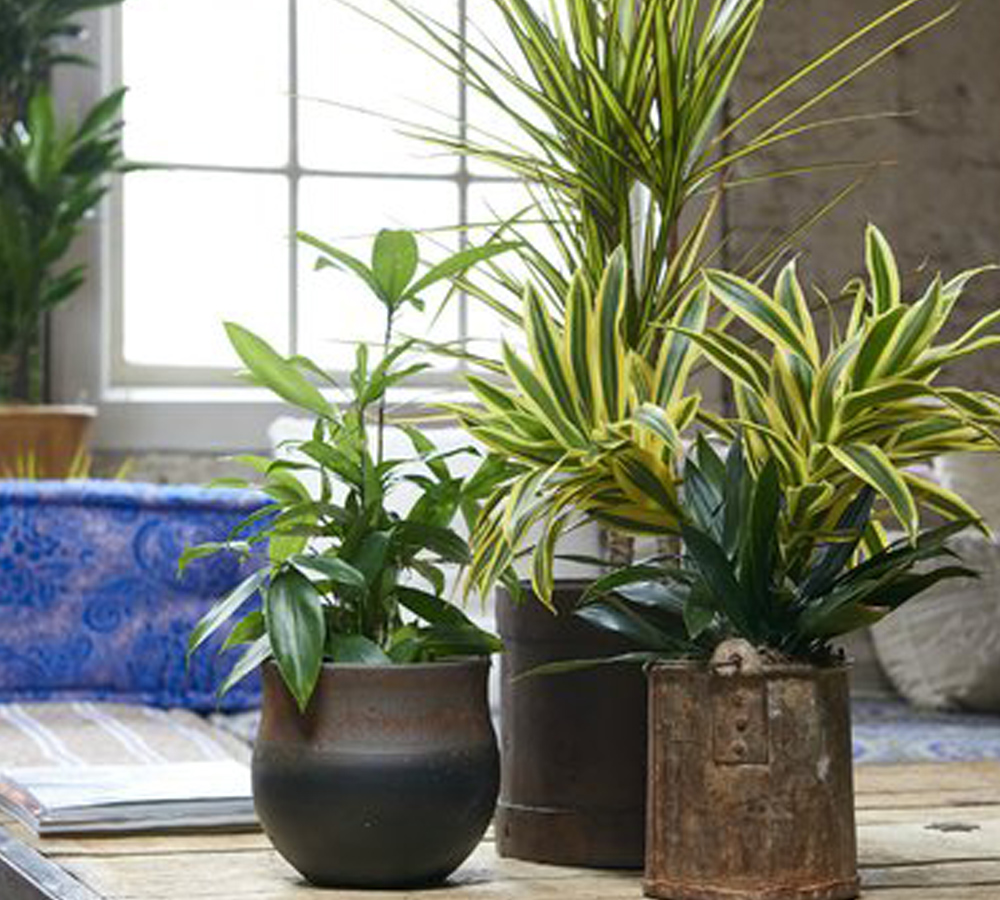
Dracaena
This houseplant will make you feel like you've just got off a flight and landed in an exotic climate with its vibrant leaves.
Similar to Devil's Ivy, all the Dracaena needs is to be in a light and airy space, away from direct sunlight, with only a light mist every now and again.
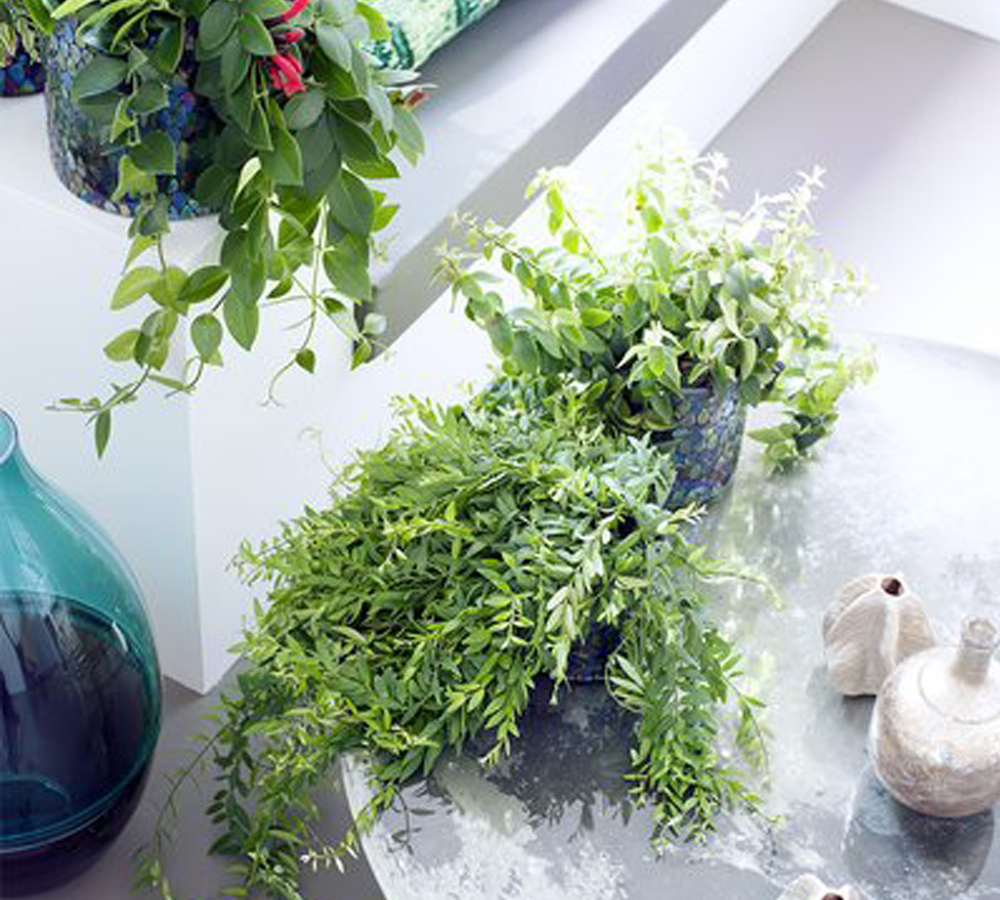
Aeschynanthus
Aeschynanthus is also known as the lipstick plant because of its red flowers, but the name isn't the only reason it's a fan favourite.
While we may be swooning over the heatwave this April, this plant is not. It needs to be out of indirect sunlight and watered only moderately but be careful not to soak the soil.
And for those who have a true love of plants, this may be the perfect job for you.
Now time to fill our homes with greenery!
The leading destination for fashion, beauty, shopping and finger-on-the-pulse views on the latest issues. Marie Claire's travel content helps you delight in discovering new destinations around the globe, offering a unique – and sometimes unchartered – travel experience. From new hotel openings to the destinations tipped to take over our travel calendars, this iconic name has it covered.